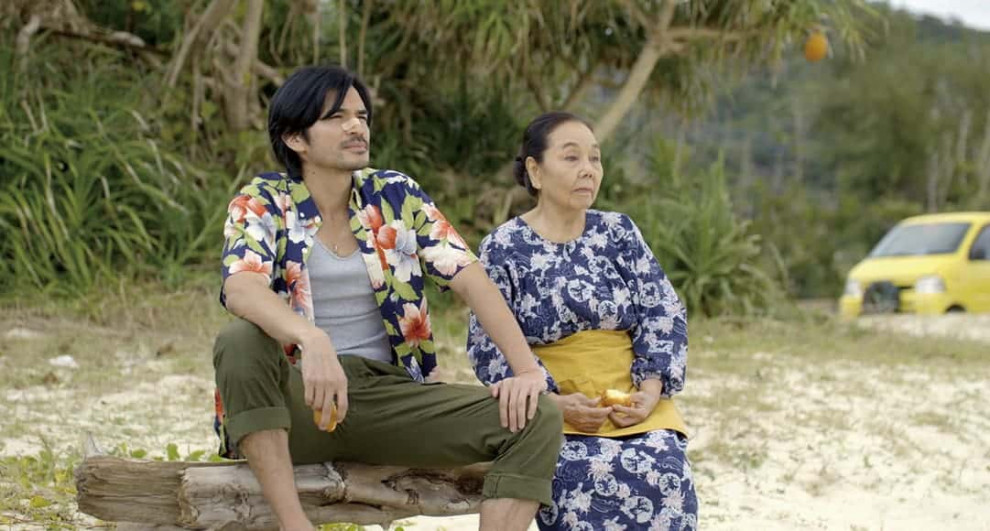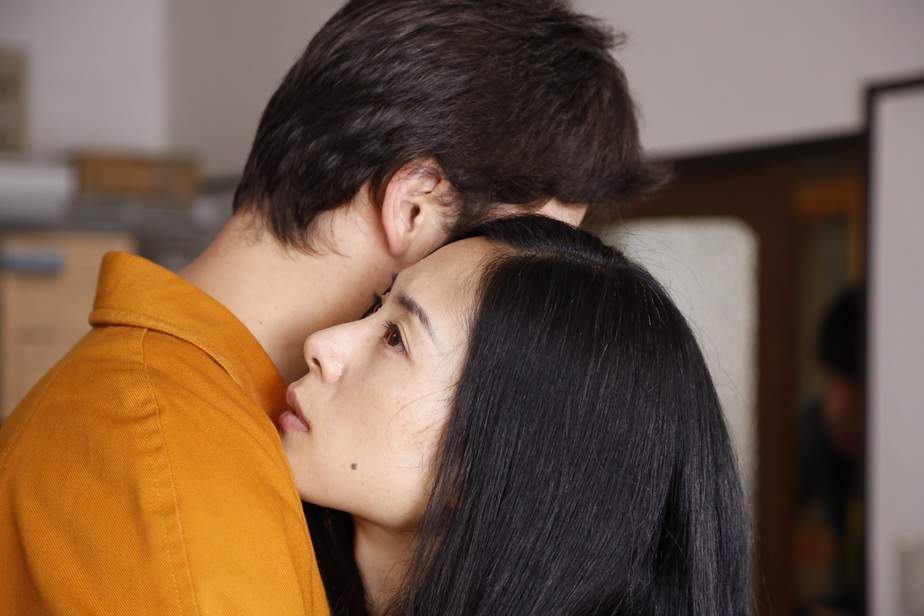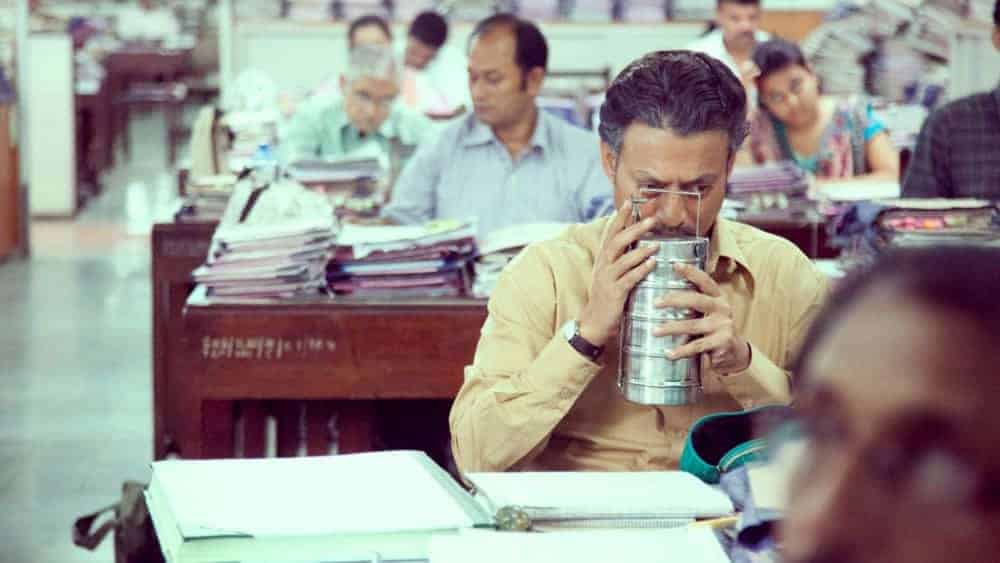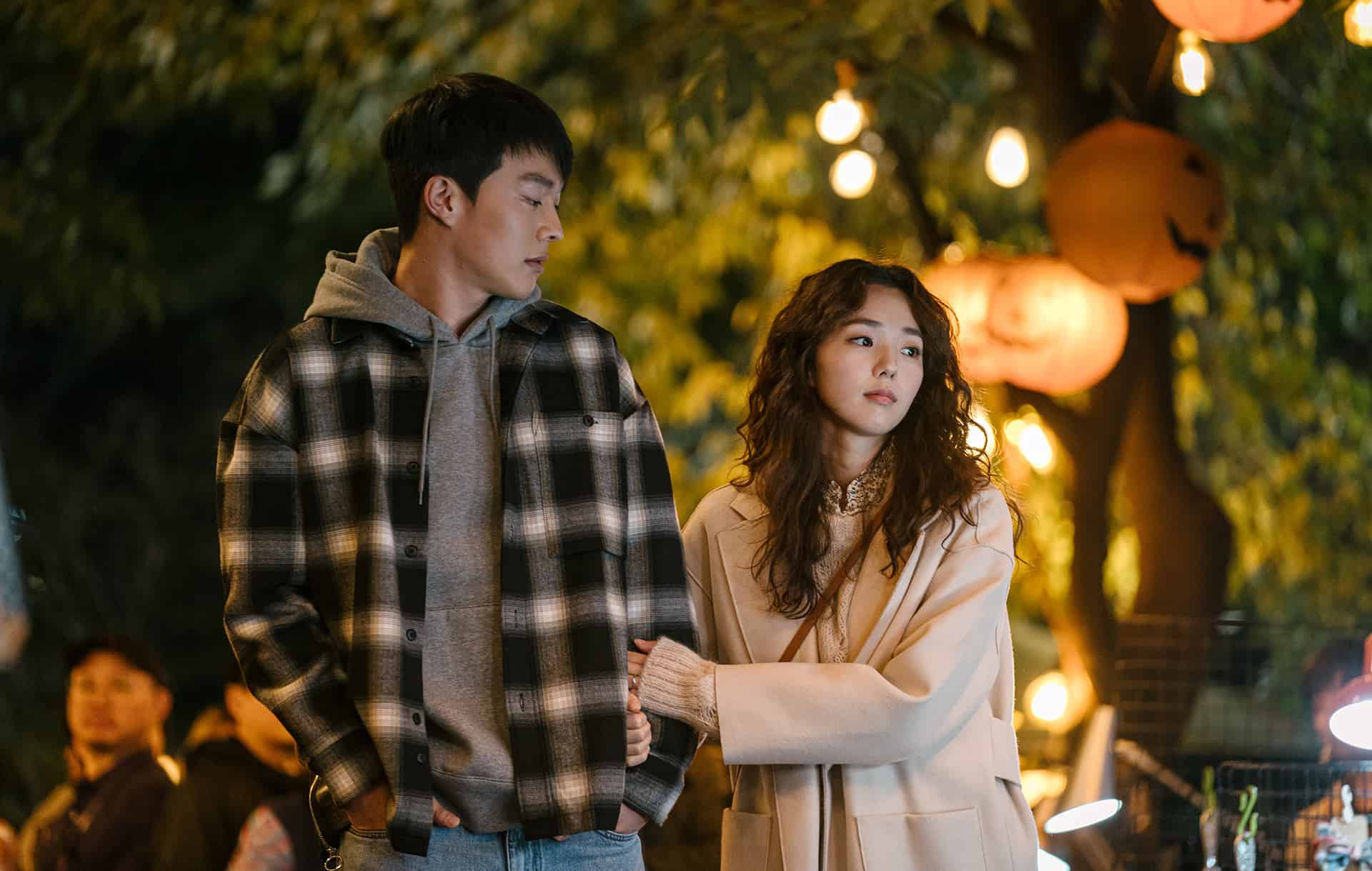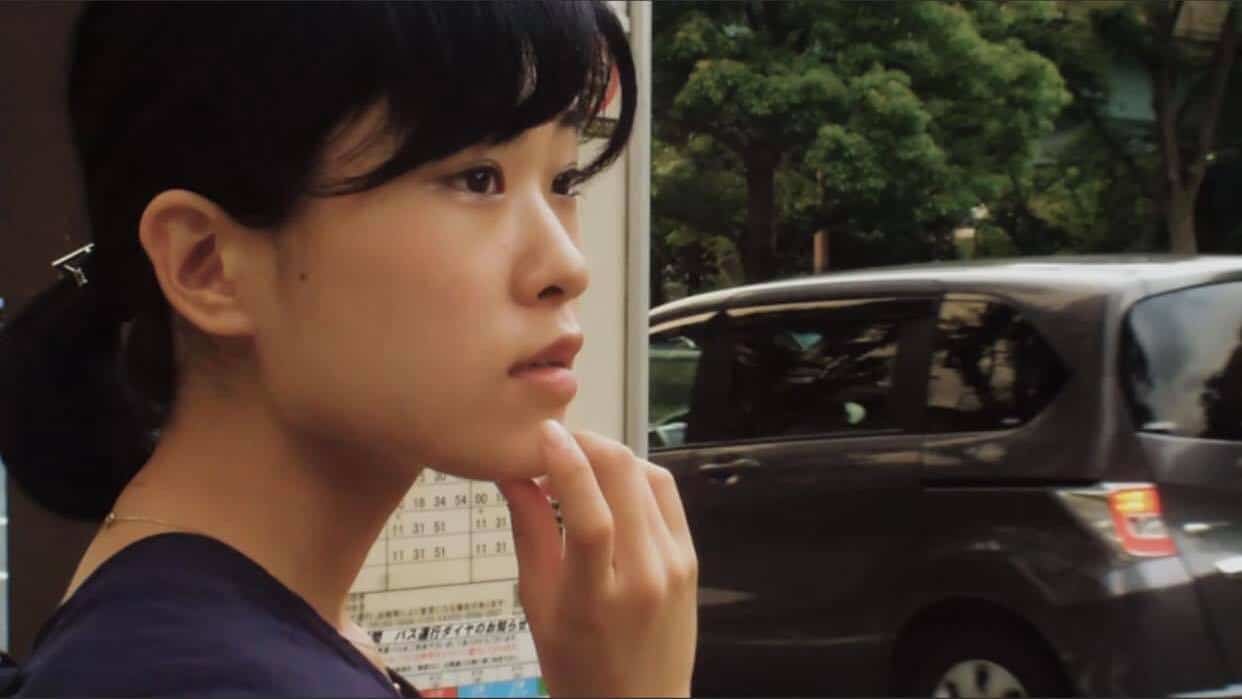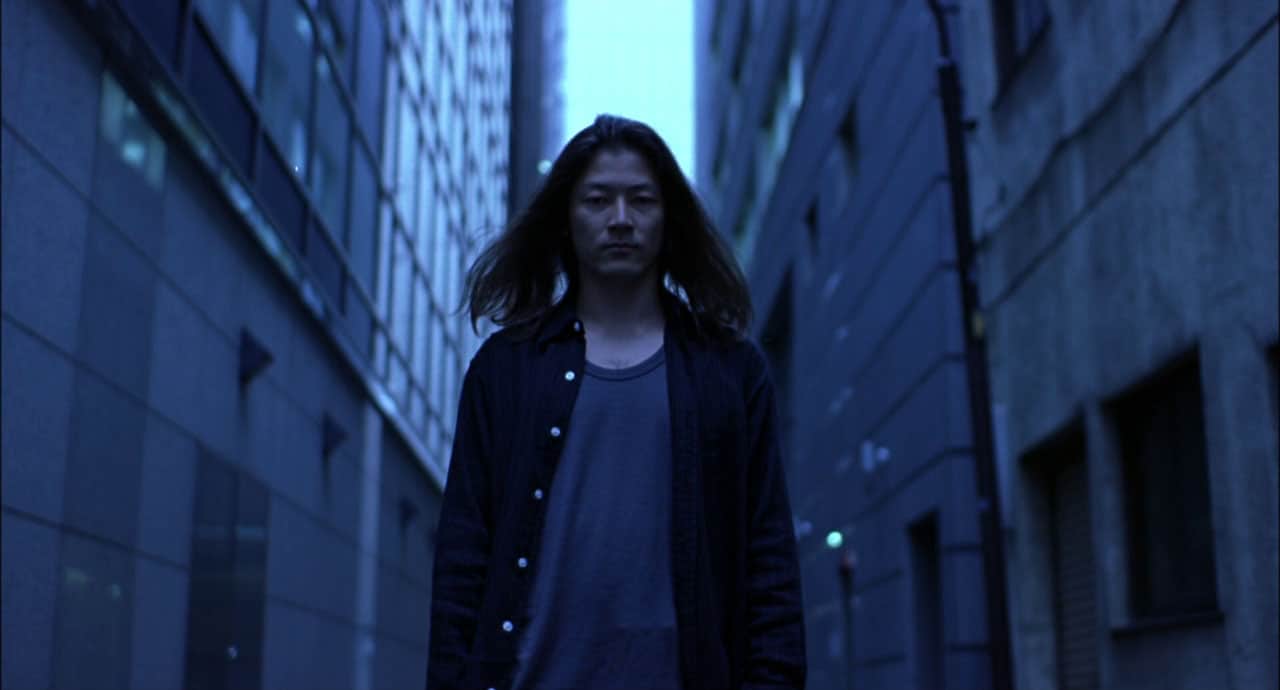Among the plethora of Japanese family dramas, it is always a pleasure to discover the ones that truly stand out. “Okinawan Blue” manages to do that by functioning as a “love letter” to Okinawa and particularly the picturesque island Zamami, where the whole of the film takes place. This sense is enhanced even more by the fact that most of the staff (director, producer, Shogen in the protagonist roles) are actually Okinawans.
Okinawan Blue is screening at Japan Film Fest Hamburg

The film tells three different stories, which are connected through the Full Moon guesthouse, its elderly owner Hana Hanashiro, and her do-it-all son, Yuhi. In the first story, a young couple consisting of a French photographer and an American-Japanese woman arrive to the island, with the former becoming increasingly annoyed by the lack of accommodation in the inn and the fact that the locals do not understand English or any other non-Japanese language for that matter. The tension rises but the true reasons behind it are soon revealed, with Yuhi and the overall setting playing a significant role in the reconciliation.
The second revolves around a fugitive who returns to the island with his new girlfriend after embezzling money, in order to take his son with him, which he has left with his brother and his wife for five years. Again, tensions rise as the boy barely recognizes his father and the police are on his heels.
The third revolves around a girl mechanic and her stepfather, whose wife elopes with another local, leaving both broken. When the man she eloped with returns, tensions rise even more.

Tsukasa Kishimoto directs three delightful episodes, whose basic theme is family, and particularly the relationships between parents and children. Through the three stories, Kishimoto examines different aspects of this theme, with the first part dealing with parents to-be, the second with parents who have abandoned their children, and the third with parents with no blood ties. These three different perspectives highlight the whole concept of the family quite thoroughly, while the different styles (the first part is more a comedy, the second comedy-drama, and the third genuinely dramatic) add to the entertainment the movie offers.
At the same time, one could say that the film also deals with four different kinds of people connected with the island: The ones who stay there, the ones who just visit, the ones who return, and the ones who leave. Through these different kinds of people, Kishimoto highlights the impact the island (and in essence all remote areas) has on people. And while the permeating sense is one of hopefulness, there is also a sense of bitterness for the fact that most people, and particularly the young, want to leave and move to the urban centers.

On the other hand, there is also much humor here, with particularly the first story being hilarious due to the lack of communication between the couple and the inhabitants, although Kishimoto has seen to include humoristic elements in all three parts. This aspect derives from Shogen as Yuhi mostly, who gives a wonderful performance, in a comic/dramatic role that highlights his range as an actor. Taeko Yoshida as Hana and Rina Nakasone as the girl mechanic also give quite memorable performances, while Masaya Kato is excellent as the main source of drama.
Another great asset of the film is Kazuhiro Kobashigawa's cinematography as the main medium of the “love letter” part I mentioned in the prologue, with him highlighting the beauty of the setting and particularly of the sea and the beach quite artfully, through a number of images of extreme beauty.
“Okinawan Blue” is a film that definitely stands out from the plethora of similar Japanese productions, through its narrative approach, directing, writing and acting, in one of the best indie movies I have seen this year.


